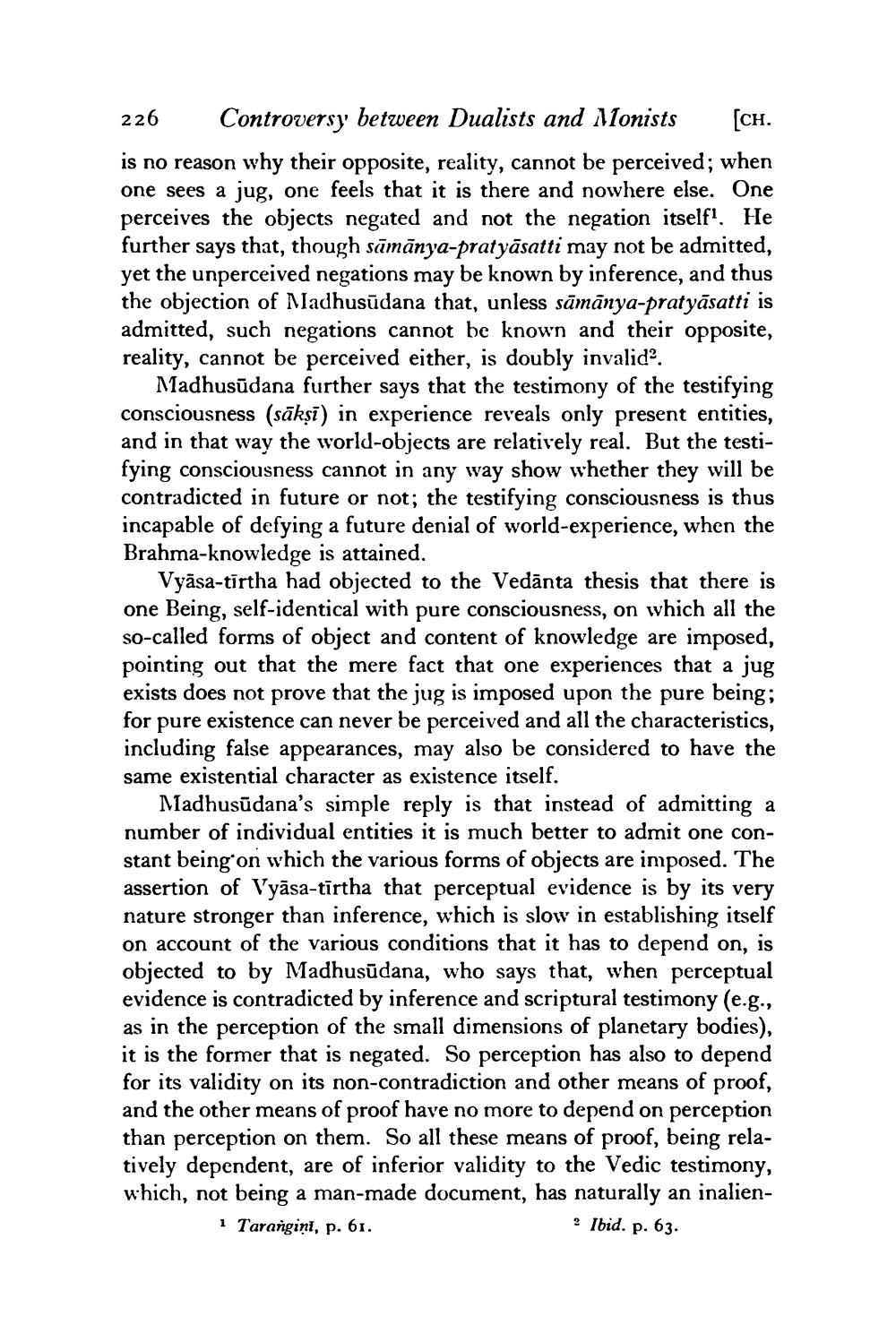________________
226 Controversy between Dualists and Nlonists [CH. is no reason why their opposite, reality, cannot be perceived; when one sees a jug, one feels that it is there and nowhere else. One perceives the objects negated and not the negation itself!. He further says that, though sāmānya-pratyāsatti may not be admitted, yet the unperceived negations may be known by inference, and thus the objection of Madhusūdana that, unless sāmānya-pratyāsatti is admitted, such negations cannot be known and their opposite, reality, cannot be perceived either, is doubly invalid.
Madhusūdana further says that the testimony of the testifying consciousness (sākşi) in experience reveals only present entities, and in that way the world-objects are relatively real. But the testifying consciousness cannot in any way show whether they will be contradicted in future or not; the testifying consciousness is thus incapable of defying a future denial of world-experience, when the Brahma-knowledge is attained.
Vyāsa-tirtha had objected to the Vedānta thesis that there is one Being, self-identical with pure consciousness, on which all the so-called forms of object and content of knowledge are imposed, pointing out that the mere fact that one experiences that a jug exists does not prove that the jug is imposed upon the pure being; for pure existence can never be perceived and all the characteristics, including false appearances, may also be considered to have the same existential character as existence itself.
Madhusūdana's simple reply is that instead of admitting a number of individual entities it is much better to admit one constant being on which the various forms of objects are imposed. The assertion of Vyāsa-tirtha that perceptual evidence is by its very nature stronger than inference, which is slow in establishing itself on account of the various conditions that it has to depend on, is objected to by Madhusūdana, who says that, when perceptual evidence is contradicted by inference and scriptural testimony (e.g., as in the perception of the small dimensions of planetary bodies), it is the former that is negated. So perception has also to depend for its validity on its non-contradiction and other means of proof, and the other means of proof have no more to depend on perception than perception on them. So all these means of proof, being relatively dependent, are of inferior validity to the Vedic testimony, which, not being a man-made document, has naturally an inalien1 Tarangini, p. 61.
2 Ibid. p. 63.




